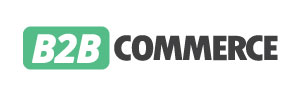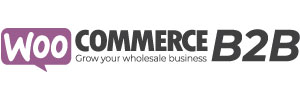In their 2020 report, Digital Commerce 360 approximated last year, online sales on B2B eCommerce sites have increased by 18.2% to $1.3 trillion.
This growth in sales covers across producers, distributors, sellers, and B2B organizations of all sizes operating in different markets. As B2Bs accept digital transformation efforts and transfer to eCommerce, a smooth ERP integration should be on top of their list.
Gartner forecasts that B2B companies that consider their integration abilities as strategic investments will grow from 40% in 2019 to 65% in 2024. The main motorist of development is expected to be in online systems integration in between tools like ERP, CRM, and eCommerce.
However what are some actual benefits of an ERP integration for B2B eCommerce businesses?
1. Automate manual processes
An ERP integration for B2B eCommerce automates various processes that would have to be performed manually. A few of the most apparent things include handbook order entry into the eCommerce system, updating stock or invoicing information, generating reports, and so on.
ERP integration maximizes your staff to carry out more efficient tasks that can not be automated: building relationships, solving consumer concerns, and offering customized support.
It also greatly decreases the possibilities of efficiency losses and mistakes, which can amount to considerable savings gradually.
2. Provide accurate pricing
It’s not unusual for B2Bs to rely on intricate prices structures. Some sellers create rates dynamically based upon altering stock data.
Others might desire discounts used according to client or order worth. Then there are tiered prices, new items, and pre-negotiated costs to handle. As B2Bs grow, their product brochures, product types, factors affecting costs grow, too.
Considering that B2Bs depend on their ERP system to centralize contracts, prices and invoicing, it makes good sense to pass on that info to the B2B eCommerce system through integration.
3.Increase inventory visibility
During the early days of the COVID-19 pandemic, everyone from healthcare facilities, institutions, services, and individuals sought out hand sanitizer and face masks.
While many B2B sellers satisfied out-of-stocks, customers dealt with disappointment because product schedule on eCommerce websites wasn’t accurate– or not there at all.
Without an ERP integration with your eCommerce software, keeping accurate, real-time inventory info on your eCommerce site ends up being near difficult. Given that the ERP software keeps a precise stock record, consumers can remain updated on stock levels as they put their order.
4. Eliminate errors during ordering
A lot of B2Bs make use of intricate purchasing workflows based upon quotes, agreements, and approval processes. Some consumers may only have access to particular products, others may need order limitations or particular shipping choices.
Since order information is kept within the ERP, an eCommerce platform with an ERP integration streamlines and personalizes the purchasing procedure according to every consumer. Most notably, all of this is done automatically, without the requirement for manual information transfer.
5. Offer omnichannel experiences
Omnichannel is specified as meeting shoppers at channels where they expect to purchase, whether it’s a physical store, website, social media, or perhaps telephone. Numerous customers are taking it an action further, anticipating to purchase online and pick up in person.
An ERP integration is main in delivering these consumers order, and fulfilment associated data into the eCommerce system. Integrating with the ERP and CRM allows eCommerce brand names to produce everyday customer journeys despite their interaction or purchasing channel.
6. Make better use of data
The majority of B2Bs keep the bulk of their data in the ERP, so incorporating it with the eCommerce system can create much better reports for sales and marketing groups. Information presence and structured operations due to linking disparate systems aren’t the only benefits.
With the ideal information at their fingertips, brand names can make calculated and informed decisions to grow their company. ERP integration results in customizable reporting that produces information from other solutions, delivering whatever from much better demand, stock, and provider projections.
7. Scalability and security
Most B2Bs have customer, item, transactions, or user data centred in the ERP, and their volume grows over time. Therefore, eCommerce brands need an efficient ERP integration that’s protected, scalable, and can accommodate their development.
With a cloud-based ERP system, brand names get a robust platform without substantial financial investment. That’s a crucial advantage considering that brand names get because scalability and security managed by the ERP without the expense and burden of working with employees and setting up an IT department.
8. Future-proof your business
Aside from being easy to scale, an ERP-eCommerce integration unlocks many advantages connected with flexibility and customization. For example, you can improve workflows as your organization model changes or broaden to new markets.
For B2B eCommerce companies starting with ERP integration, they have the liberty to integrate fundamental performance, then fine-tune and develop their perfect ERP system with time as their requirements alter.
This nimble procedure is efficient, prepares you for unanticipated circumstances, and allows you to act on chances much faster.
9. Improve compliance
A connected ERP and B2B eCommerce system streamlines compliance by delivering customers their negotiated pricing and contracts. Integrations help tie tax or region-specific rules directly to purchases made by customers.
ERPs also keep accounting and tax data that are associated with inventory. Since invoicing and taxation activities are performed automatically, ERP integration gives you a central place to track and manage your contracts, invoices, tax, and other compliance requirements.
10. Boost the customer experience
It’s clear that delighted consumers suggest more sales. With better customer account tracking and personalization used by an ERP integration, brands can produce unforgettable service experiences for consumers.
An eCommerce system incorporated with the ERP can offer clients information about their products, fulfilment and shipping preferences, or order history. By enabling omnichannel self-service experiences, brands remove the requirement for consumer calls about order verification and updates.
Contact the Storehub.io sales team to book a consultation.












